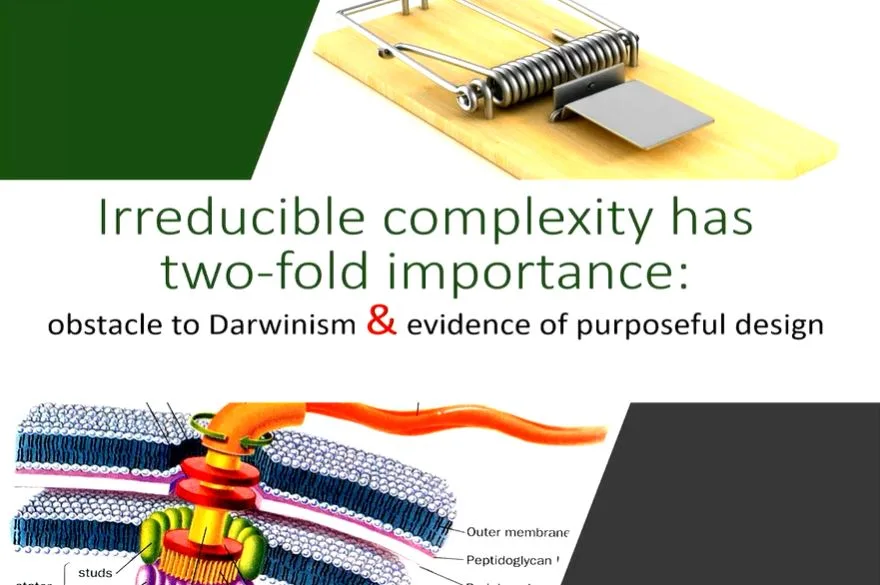Key Takeaways
- Michael Behe, a biochemistry professor, argues that the complexity of life cannot be fully explained by Darwinian evolution, proposing that such complexity indicates intelligent design instead.
- Behe touts the concept of 'irreducible complexity,' asserting that certain biological systems cannot evolve through gradual modifications as proposed by Darwin.
- Despite resistance from the scientific community due to the philosophical implications of intelligent design, Behe contends that science should follow the evidence wherever it leads, suggesting that intelligent design is a rational explanation for biological complexity.
The foundations of life are far too complex to have come about from natural selection and random mutation, according to a biochemistry professor’s recent talk at Cornell University.
Lehigh University’s Michael Behe spoke at the Ivy League institution in mid-September for a Heterodox Academy lecture titled “The Argument for Intelligent Design in Biology.”
Behe, author of several books, most recently “Darwin Devolves: The New Science of DNA That Challenges Evolution,” argues that irreducibly complex systems at the molecular level “are best explained as being the result of deliberate intelligent design.”
“Everyone agrees that aspects of biology appear to be designed,” Behe said at Cornell.
But biologists hold fast to the prominent explanation despite “structural obstacles to Darwinian evolution,” he said. Yet random mutation and natural selection are concepts developed in the 1800s, Behe said. Times have changed.
Darwin developed his ideas prior to atoms and cells being fully discovered and understood. Since then, and especially in the past 75 years, modern biology has made enormous progress at understanding life, Behe said.
In recent decades, discoveries such as DNA, the complex structures of protein, and the polymerase chain reaction process have shown scientists that “the cell is run by machines, literally machines made out of molecules,” Behe said.
“So the question now becomes,” he added, “can Darwin’s theory explain what biology has discovered, especially at the foundation of life?”
No, he said.
“Darwin’s mechanism is grossly inadequate to explain the molecular structure of life,” he said. “Purposeful design is empirically justified.”
Central to his argument is the concept of irreducible complexity, which is when the parts of a machine interact with each other to produce some function that the individual parts themselves can’t produce.
For example, a mousetrap. It could never evolve through the Darwinian process because every single part is needed for it to work, Behe said.
“Irreducibly complex systems are big headaches for Darwin’s theory,” Behe said. “So the question then becomes, are there any irreducibly complex biological systems, or especially at the foundation of life, biochemical systems?”
“And the answer is, yeah, there are tons of them. They’re everywhere.”
Behe cited the bacterial flagellum, which bacteria use to swim; it includes a drive shaft and motor.
“Like the mousetrap, if you take away the propeller, if you take away the drive shaft, if you take away the motor, you’re not going to have any bacterial flagellum activity, it’s not going to work at all,” he said.
“Essentially, the very definition of a machine is irreducibly complex.”

Darwinian evolution relies on “numerous successive slight modifications,” but that is impossible with irreducibly complex systems, Behe said.
Biologists refuse to admit it because of its implications, he added.
“Intelligent design strikes many people as pointing beyond nature. It has philosophical, maybe even theological, implications. And that makes some folks uneasy,” Behe said. “And they think that science should stay far away from things that have such strong extra-scientific implications.”
However, science is supposed to follow the evidence wherever it leads; let other people worry about philosophical implications, he said.
“I think it’s good advice right now,” Behe said. “Darwin’s theory is a Potemkin village. It always points to similarities between different lines of creatures. …And when you ask about how those differences, how those new and interesting systems came to be, you don’t find anything in the literature.”
“So in conclusion, I just want to say that if you think about it, if you try to wrap your mind around it, you will conclude that intelligent design is rationally compelling.”
MORE: Famed chemist tells the world: Scientists are totally ‘clueless’ about the origin of life
MORE: Investors offer $10 million to recreate the origin of information. So far, no one can do it.












